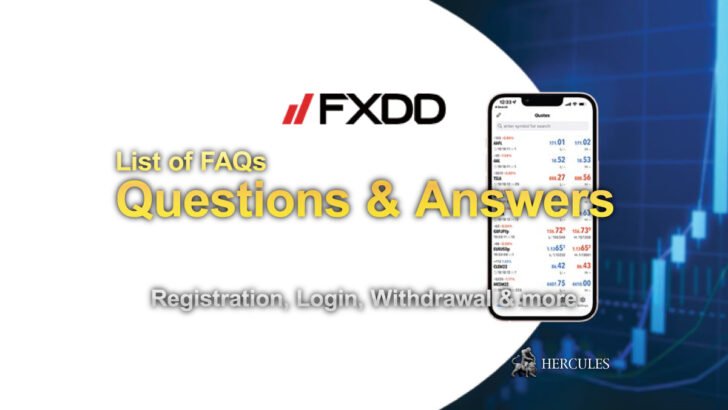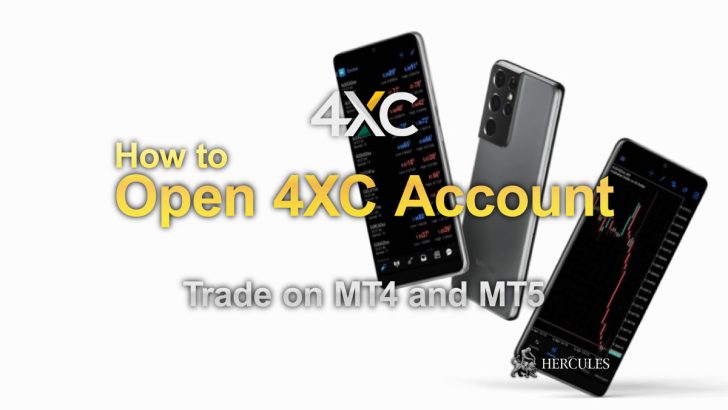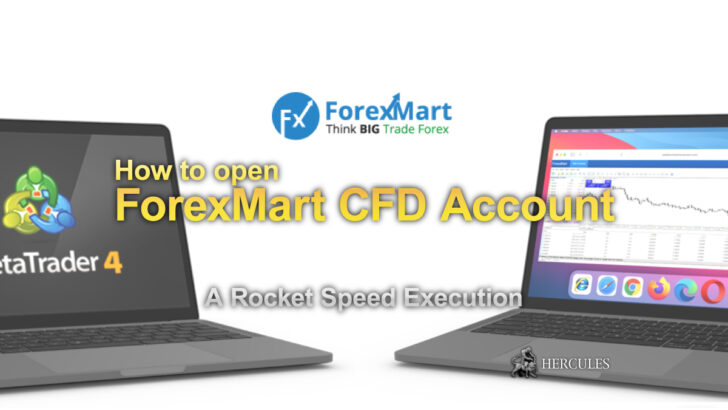Question: How to open account & Start trading Stocks with Capital.com?
Notice
This FAQ has ended its release period. Please check Capital.com's latest information and campaign on Capital.com's company introduction page.
Capital.com - What's now?
We are no longer promoting Capital.com. The information regarding to Capital.com on the website '' maybe outdated. ref. Capital.com
How to open an account with Capital.com?
Choosing Capital.com as your broker is a wise move given its global reputation and regulations by bodies like the FCA, CySEC, FSA, and ASIC. Firstly, ensure that Capital.com is available in your country.
Initiate your account process on Capital.com’s website. If you’re new to trading, the ‘Standard (retail)’ account is suitable, whereas seasoned traders might prefer the ‘Standard (professional)’ account. Companies can opt for the Corporate account by contacting Capital.com directly.
To avoid extra costs, choose a base currency that matches your bank account, with GBP, USD, EUR, and PLN as available options on Capital.com. Submit necessary documents for identity (e.g., passport) and residency verification (e.g., utility bill).
Before you start trading, you’ll complete a survey to ensure you understand the basics and risks. To fund your account, deposit a minimum of $20 via various methods like bank transfers or credit cards. Then, on the platform, navigate to ‘Trade’, select an asset, and choose ‘Sell’ or ‘Buy’ to specify your transaction. With these steps, you’ll be ready to trade on Capital.com.
Open an account with Capital.com
CFDs vs Share Trading: Understanding the Differences
The financial market provides various ways for investors and traders to capitalize on price movements. Two of these methods are Contracts for Difference (CFDs) and Share Trading. Here, we will delve deep into the distinctions, advantages, and drawbacks of both, allowing you to make an informed decision based on your investment goals.
Go to Capital.com’s Official Website
Introduction to Share Trading and CFDs
Share Dealing or Trading is the act of buying and selling company shares on stock exchanges or through brokers. For instance, an investor can purchase Apple (AAPL) shares on the NASDAQ exchange. Acquiring these shares implies an ownership stake in the company, thus possibly entitling the investor to dividends.
Contracts for Difference (CFDs), in contrast, don’t grant ownership of the underlying asset. Instead, they’re agreements to exchange the difference in the value of an asset from the time the contract is opened to when it’s closed. This means you can profit from the price movement of a stock (like AAPL) without ever owning the stock itself.
Invest in Stocks with Capital.com
Detailed Comparison: CFDs vs Share Dealing
Key Similarities
- Exposure to Share Price: Both methods allow traders to speculate on stock price movements.
- Risk: Every investment comes with risks. Both share and CFD trading are no exceptions. It’s essential always to be prepared and never invest more than you’re willing to lose.
- Liquidity: Both are generally liquid, making them easy to buy or sell.
- Global Availability: Both trading forms are accessible to investors worldwide.
Key Differences
- Nature of Instrument: Share dealing means owning the stock, while CFDs are derivatives based on price movements.
- Position Direction: CFDs provide the flexibility to go short, predicting a price drop. Share dealing, on the other hand, is primarily long-focused.
- Leverage: CFDs come with the option of leverage, amplifying both potential profits and losses.
- Trading Hours: Shares are traded when their respective exchanges are open. Some CFDs, depending on the broker, might be traded out-of-hours.
- Asset Varieties: CFDs offer access to a broader range of assets, including indices, commodities, forex, and more. Share dealing is typically limited to stocks and ETFs.
Practical Scenarios
Consider a trader looking to profit from a price movement of a stock valued at $1000.
With Share Trading, the trader would need to invest the entire $1000 to buy the stock.
In CFD Trading with a 1:5 leverage, the trader can take the same position by depositing only $200 (20% margin).
Share dealing is often perceived as a long-term approach, while CFDs, given their leveraging nature and potential overnight fees, are considered short-term.
Invest in Stocks with Capital.com
Decision Point: Which One Suits You?
The fundamental distinction is that CFD trading involves speculating on price movements without owning the stock. It allows leveraging, making it possible to open larger positions than what your initial capital would permit. However, this comes with its set of risks, including rapidly amplified losses.
It’s crucial to incorporate risk-management tools, like stop-loss or take-profit orders, to mitigate potential downsides.
Share trading provides the satisfaction and benefits of actual ownership, like dividends. It can be tailored for both short and long-term strategies, whereas CFDs, due to fees, are more inclined towards short-term plays.
Go to Capital.com’s Official Website
Advantages at a Glance – Why Opt for CFDs?
- Leveraging: Enhance market exposure with a smaller upfront deposit.
- Hedging: Effective for counteracting potential losses in a diverse portfolio.
- Short-term Profit: Ideal for benefiting from short-term price fluctuations.
- Broad Market Access: Speculate across various asset classes.
- Tax Benefits: Possibility to offset losses against profits, though it’s essential to consult with a tax professional.
Invest in Stock CFDs with Capital.com
Why Opt for Shares?
- Ownership Benefits: Grants privileges like voting rights.
- Long-term Strategy: Adjust holdings as per market dynamics over extended periods.
- Defined Risk: Without leveraging, losses are restricted to the initial investment.
The choice between CFDs and shares boils down to individual preferences, risk appetite, and investment objectives. While CFDs offer broader market access with leveraged exposure, shares grant actual ownership perks.
In any decision, remember to stay informed, conduct thorough research, and always be prepared for the market’s volatile nature. Investing should never be a gamble; it should be a calculated strategy.
Invest in Stocks with Capital.com
FAQs about Stock Trading
- What is a Contract for Difference (CFD) and how does it differ from share dealing?
- A CFD is a derivative product where a broker typically agrees to pay a trader the difference in value of a security between its opening and closing price. With CFDs, traders can speculate on the price of assets like shares, ETFs, and commodities without owning the actual asset. On the other hand, share dealing involves buying and owning the actual shares of a company, granting ownership privileges like voting rights and potential dividends.
- How does CFD trading work with stocks, for instance, Apple (AAPL)?
- When a trader buys a long CFD on AAPL, they’re speculating that its share price will rise. Conversely, if they open a short CFD position on AAPL, they’re speculating on a price drop. This all happens without the trader ever owning AAPL shares directly.
- Is CFD trading more cost-effective than traditional share dealing?
- The cost-effectiveness of CFD trading compared to share dealing depends on the broker and the associated commissions. While CFDs may require a smaller initial outlay due to leverage, they can also involve overnight fees. It’s crucial to note that leverage, while allowing for larger market exposure with less capital, can amplify both profits and losses.
- Can I use CFDs as a hedging strategy against my long-term stock portfolio?
- Yes, you can utilize short CFD stock positions as a hedging tool. If you anticipate a temporary drop in the value of stocks in your long-term portfolio, short CFDs can help offset potential losses during that period.
- What are the risks associated with CFDs compared to traditional stock trading?
- Both CFDs and stock trading come with inherent market risks since prices can fluctuate. However, the use of leverage in CFDs can magnify these risks, leading to potentially larger gains or losses in a shorter time frame.
- What’s the main distinction between a CFD and a share?
- A CFD is a derivative instrument allowing traders to speculate on an asset’s price direction without owning the asset. In contrast, a share represents a stake of ownership in a company, granting certain rights and entitlements to the shareholder.
- With all these differences, how should I choose between CFDs and share dealing for my portfolio?
- The choice between CFDs and share dealing largely depends on an individual’s risk profile, investment goals, and trading objectives. CFDs can offer broader market access with potentially lower initial capital due to leverage, but this comes with increased risk. Share dealing, while possibly requiring more capital upfront, provides ownership benefits like voting rights and potential dividends. Always ensure you conduct thorough research and consider consulting with financial experts before making a decision.












